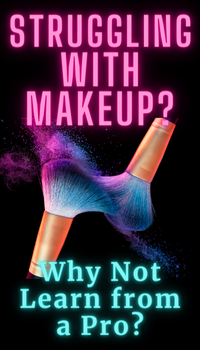Nature, Nurture, or Not Sure
Last time I reported to you about my wonderful friend, Marie, and the news she sprung on me: she was giving up the Marie part of her life. Or should I say ‘he’ was giving up Marie.
After partying and sleeping on the news we talked about it the next morning.
“How can you give up a transgender life?” I asked, “Your femme persona is something you were born with or at least it has been with you since childhood. You can’t reverse traits that are so ingrained. . . . Can you??
No sooner was that leading question out of my mouth than I was thinking I might regret it. Many of us anywhere along the transgender spectrum are content to report that we knew from birth that we were meant to be born female, that there was just a mistake made with our ‘plumbing.’ The physical traits of our male genitalia just do not match our emotional traits of femininity, they say. It is our complex combination of chromosomes and genes that have made us and everyone else the way we are. In common terms it is giving ‘nature’ the dominant role in developing personality.
Marie is not one of those. She says that while nature plays a role in determining who we become it is not the 100% determinant. The alternative theory of human development then says environmental factors – things and people around us from a very early age – help to shape our personality. That is usually referred to as ‘nurture.’ Hence the alliterative term ‘nature vs nurture’ frames the debate.
I had once suggested to Marie that if she felt nature wasn’t 100% responsible for creating persons who are transsexual or transgender then just give it a percentage and we can assign the rest to nurture and be done with it.
“Not so fast,” countered Marie. “We would be overlooking a very important factor in an individual’s development.” Marie had told me this some time ago and now I guess I was due for a refresher lesson.
Marie was keen to talk. For someone who was about to give up her transgender lifestyle the whys and wherefores of it seemed still to be very important.
She asked me knew about the idea of ‘heritability.’ I knew very little but I was about to find out. Marie explained to me that we are all combinations of things called traits – physical traits, personality traits, cultural traits, social traits and so on – it can be seen that some of our traits are far more ‘heritable,’ passed on by the genes that make us than others. Skin, eye and hair color are extremely heritable traits. That is seen for example when identical twins have exactly the same identical traits. However if identical twins are raised apart we may see them as adults looking very much the same but acting and displaying different or similar personalities, the latter being determined by the life factors over the years.
“So that seems reasonable to me,” I had once said to Marie, “ We come in to the world with a set of genetic pre-determinants which are then molded and refined over our early years and what comes out is the person we are.” I shared the example of siblings I knew, a brother and sister just over a year apart in age, who were split up when their parents’ marriage broke down. The two year old boy went to live with his athletic and sports-minded dad and his new family while the three year old girl lived with her mother and new family in a different part of the country. The girl’s family were more inclined to sit around watching television than get up and go while the boy’s family would spend summers playing soccer, swimming at the cottage and winters on skis and at the hockey rink. It had been no surprise to me, I told Marie, that the boy turned out vey out-going and athletic while the girl, according to her dad who got to know her years later, was shy, withdrawn and lacked much self-esteem.
“That’s probably part of it but it doesn’t have to be the end of it,” countered Marie, “I’m no scientist. I’ve done no sociological research so I can’t speak for others, just for myself but I think there is more to it than just nature and nurture making up who we are thus we are what we are?”
“What are you suggesting?” I asked.
“I’m suggesting the causes of me being Marie are within me,” she said forcefully, “and the solution to me not being Marie is within me, too.”
I sensed Marie was about to go on another roll so I remained quiet. I also sensed that she was about to utter some gender heresy.
After a short pause Marie continued, “Look, you and I both enjoy our femme identities. We get pride in expressing ourselves as women and we enjoy that at times others see us as women. But do we actually want to be women?”
“Well, yes at times I do.”
“I mean when you are at home working in your yard or barbecuing with friends are you thinking that your friends should be seeing you as Linda, that you are cheating yourself out of true self-expression by wearing those male clothes with your 5-o’clock shadow?” challenged Marie.
“Well, that doesn’t happen because we live in a condo apartment. But I get your point. No, I guess I’m not driven to change my gender identity but I still enjoy my times as Linda.”
“Enjoying our femme times does not have to mean we would enjoy being women or feel compelled to be women,” Marie said as she brushed a hand provocatively through her long wig, “Some time ago I got the urge to do some Internet research on gender identity and gender dysphoria.”
I cringed at the sound of the word and Marie noticed.
“I sense you think of gender dysphoria as being an illness,” she tried to reassure me, “it’s not. Gender dysphoria just involves a conflict between a person’s physical or assigned gender and the gender with which he or she identifies. People with gender dysphoria aren’t comfortable with the gender they were assigned by their genitalia. They are uncomfortable with their body and uncomfortable with the expected roles of their assigned gender.
“People with gender dysphoria may often experience significant distress and/or problems functioning associated with this conflict between the way they feel and think of themselves and their physical or assigned gender. Some might consider it an illness but to me it is simply an acquired condition, acquired probably partly by nature and partly by nurture.”
If she sounds a bit ‘text-bookish’ to you just accept that is Marie being Marie. When she gets into a subject she really gets into it.
Marie continued, “So that led me to some of the clinical explanations of individuals with gender dysphoria. To fit their definition I should not be comfortable with my genitalia. I should want breast implants and a vagina. Long ago I should have let my hair grow out and have lasered away my beard and body hair. When I’m in male mode I don’t find myself dreaming of being a woman and when I’m in female mode I don’t get particularly upset with other people if they read me as male. In all situations do I think as a woman would? Hardly.
“Those are all conditions that are supposed to mark someone as a person with gender dysphoria. In fact having just two of those conditions is supposed to do it. But I could not and cannot identify with any of them.
“So if not gender dysphoria, what drives my behavior?” Marie asked rhetorically.
I let her continue. “I had to go back to the beginning and work it out from there,” Marie explained, “I don’t remember the exact moment I began but I do recall it being associated with the pleasure of the forbidden fruit. I was the kind of kid that if I was told I shouldn’t do something then I wanted to try it. Very quickly there was a satisfaction from doing something sneaky. Somehow it morphed in to sexual arousal and pleasure when I found myself putting on some borrowed lingerie, particularly when I looked in the mirror while wearing panties and a bra. However, and this is key, the desire to wear lingerie did not last after I had an orgasm. Instead I felt guilt and regret. As I look back I think that if I were meant to be a female I would not have felt that post-orgasm guilt. In fact I would not have been so sexually aroused by the clothes I was meant to be wearing.”
‘Really,’ I thought, ‘who didn’t feel guilty after masturbating in to a pair of panties?’ I thought it but I did not say anything.
Marie continued, “So I’m thinking that if it is not gender dysphoria that is behind this behavior perhaps I’ve become addicted to dressing and assuming a femme identity. Or at least I’m addicted to the pleasure – sexual and otherwise — that comes from appearing as a female.
“Just like an alcoholic I seem to become edgy when denied my pleasure for an extended period of time. Like a shopaholic I get pleasure from buying nice dresses and neat looking jewelry even if I don’t really need them and perhaps like a nymphomaniac I seek out pleasure from men more for the feeling of control it gives me than the sexual pleasure I derive”
“Interesting,” I interjected, “but did the scientific researcher in you consider any other possible explanations?”
“Yes, of course,” said Marie, “I considered what if my dressing was driven by an OCD, an obsessive-compulsive disorder. In its simplest terms OCD is like a needle getting stuck on an old record. OCD causes the brain to get stuck on a particular thought or urge. It sure is a possibility and I exhibit at least a few of the common behaviors of an OCD; at times a lot of the common behaviors like feeling dissatisfied because I wanted to spend more time as Marie, trying to spend less time as Marie but failing, neglecting other activities to find time to be Marie, lying to others about what I was doing and even using Marie as an escape.
“But you know what: those are all common signs of an addiction as well. So addiction is my story and I’m sticking to it.”
“So how does that come around to your intention to stop being Marie if you are, as you say, addicted?” I asked.
“Ah, you see, the beauty of identifying as addicted instead of gender dysphoric is that if I want, when I want I can try to beat back that addiction. It will not be easy and there may be some back-slipping but I truly believe the time is right to give it a try.”
I had my doubts about what Marie was saying. It had not been 24 hours since we were totally immersed in our femme roles giving two men the times of their lives. However she was saying it in convincing fashion. “Do you really think you can give all this up?” I asked as we sat there in the hotel coffee shop, both exhibiting our best femme business casual looks, talking and enjoying the passing crowd paying no attention to us.
“There are some other things,” she explained, “we are getting up there in years. Last year I was treated for prostate cancer and while I still get an erection and orgasm I’ve lost ability to ejaculate. It’s like that robs me of some of my sexual prowess. Besides, my wife and I are both about to retire. I’ll be losing my excuses to travel. Without travel there will be no chance for dating and less chance for dressing. I might as well try to make a break from it.”
We sat there quietly for a while. I think if Marie had spoken in general terms of crossdressing as an addiction I would have been inclined to debate her. However she was insistent that this was her story, not a generalization for others. So I bought it. Also I have to admit she had me thinking about ‘Linda’s’ roots as well and how it has been possible enjoying my femme identity on a part-time basis without any strong desire to seek gender reassignment.
After the pause Marie had one final comment: “Now don’t get the impression that I’ll ever be able to consider myself not a crossdresser. Just like an alcoholic is always an alcoholic even after years of sobriety I think I will always have deep inside me the urge of feminine expression. I just am counting on it not being strong enough to drag me out,” she said with a little laugh.
I understood her pun, “Drag? That’s a good one.”
We parted expressing the pleasure we have had in knowing each other and me getting Marie to promise that if she is ever to back-slip I’m the first one she is to call.
Moved to make a comment? Login here and use the comment area below.
Category: All TGForum Posts










